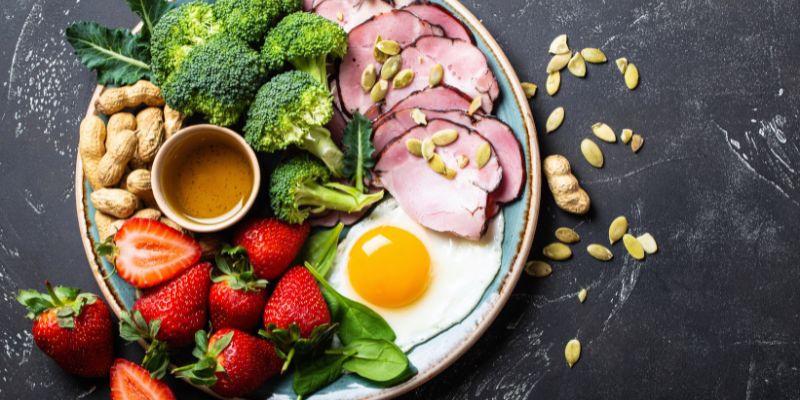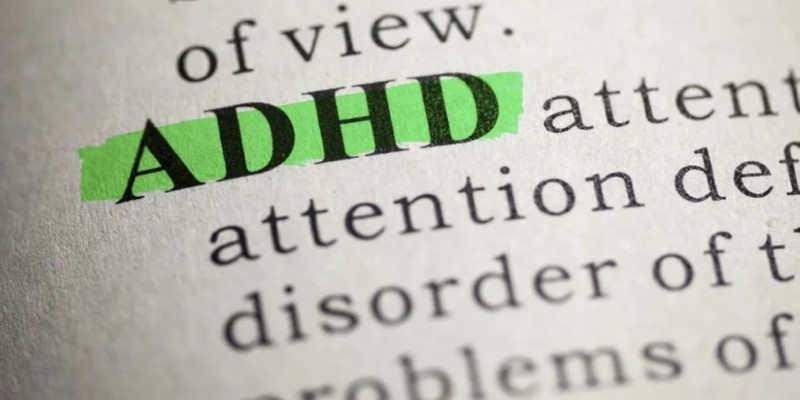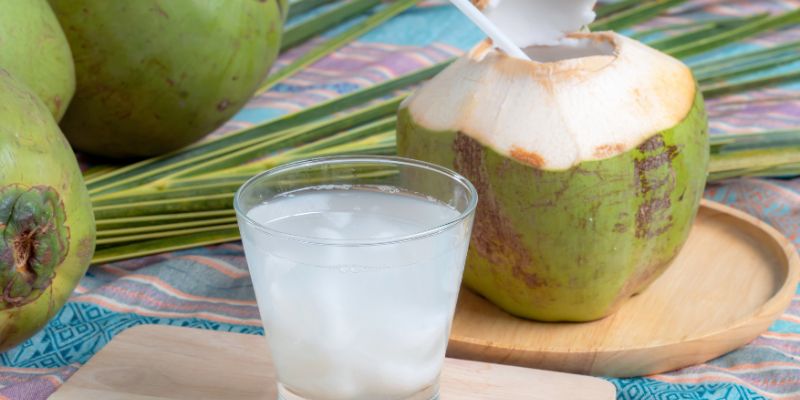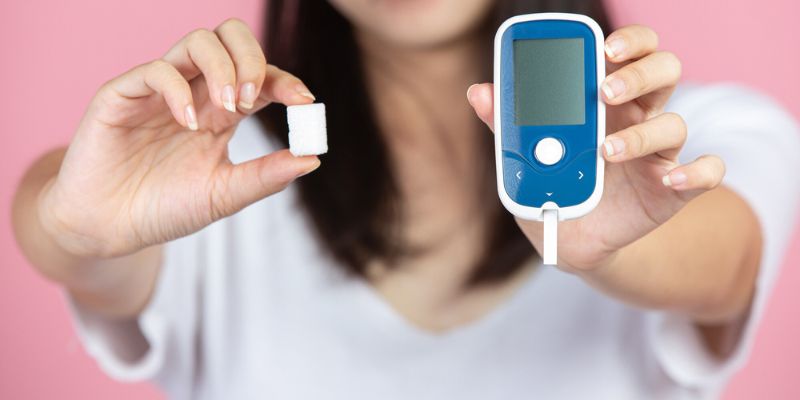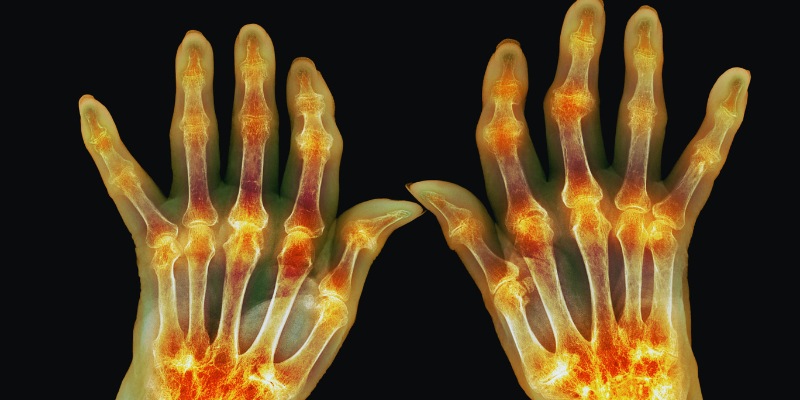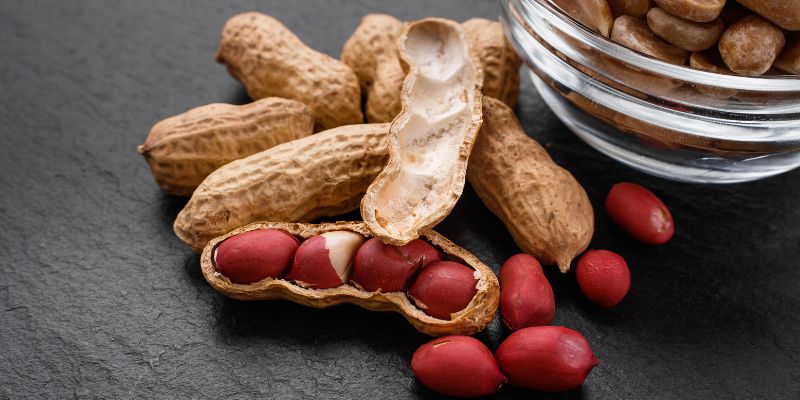Healthy Low Carb Eating with Diabetes: A Guide and Meal Plan
Diabetes is a chronic disease that affects millions of people. Though maintaining diabetes is a complicated job, a low carb diet can help you stabilize the blood sugar level and control type 2 diabetes. Thats because carbs are one of the main ingredients in increasing blood sugar.
But remember that carbohydrate foods also contain minerals, essential vitamins, and fiber, the major part of a healthy diet. So, a low carb diet should not mean a no-carb diet. Therefore, understand things better before adding low carb foods to your diet. Also, we will provide you a list of low carb foods and a 7-day low carb meal plan to help you control your body sugar level.
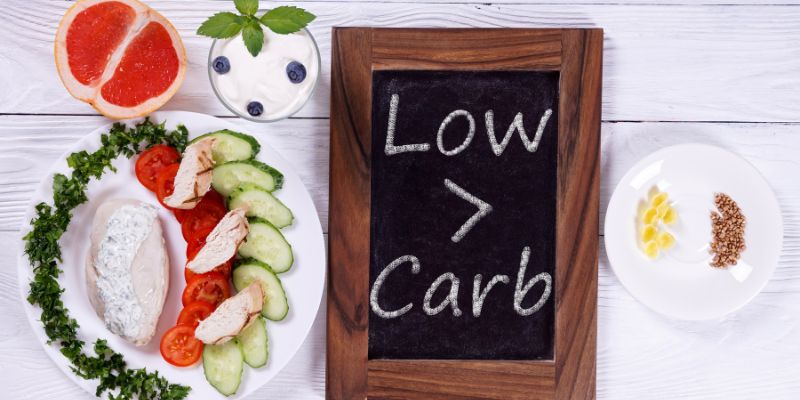
What Is Healthy Low Carb Eating?
Healthy low carb eating means eating fewer carbohydrates. Low carb foods have high protein and healthy fats but only provide the carbs needed to support stable blood sugar levels. Therefore, a low carb diet keeps the blood sugar levels normal and helps you manage diabetes.
These foods also provide important nutrients (vitamins, minerals, and many others). Thats because a healthy, low carb diet focuses on natural foods like vegetables, lean meats, and good fats. A low carb diet means choosing better nutrients for the human body. So, to manage diabetes, make healthy low carb foods a major part of your daily diet!
How Does Carb Affect Diabetes?
The human body breaks carbohydrates into glucose, raising blood sugar levels. However, the blood sugar level rises fast when you eat high-carb foods like bread or pasta. In this regard, for people with diabetes, this sudden increase in blood sugar makes diabetes or blood sugar management a challenge. That's why monitoring the amount and type of carb-containing foods you eat is very important. Remember that high blood sugar is not only linked to diabetes, but it can also cause serious health problems like heart disease and kidney issues.
Can Low Carb Eating Help Manage Diabetes?
Yes, low carb eating is very helpful for people with diabetes. These foods help them manage their condition more effectively. If you think how they do that, let's understand it in detail here:
- Lower Blood Sugar Levels: When you consume fewer carbohydrates, your body has less glucose to process. Low carbs will help control your blood sugar.
- Improved Insulin Sensitivity: A low carb diet can help your body use insulin more successfully. Low carbs will help insulin work better to manage body sugar levels.
- Weight Loss: Many people with diabetes struggle with weight management. Remember that weight loss is vital for overall health and blood sugar control. A low carb diet plays a key role in this regard, as it helps in weight loss, reduces blood sugar spikes, and boosts fat metabolism.
- Reduced Need For Medication: Some people find that after switching to a low carb diet, they may need less diabetes medication. If you control your carb intake, you can fix your diabetes efficiently!
Foods To Eat During Low Carb Intake Diet
Eating low carb food is beneficial in various ways and if you want to follow a low carb diet, you should choose foods that are low in carbs but rich in vitamins and minerals. Below, we have enlisted the low carb foods that you can add to your diet:
- Vegetables with Low Starch: Spinach, broccoli, cauliflower, zucchini, and bell peppers are great low-starch options.
- Protein Sources: Meats like chicken, turkey, and fish are full of protein. Eggs and plant-based proteins like tofu are also good choices.
- Healthy Fats: Avocados, olive oil, coconut oil, and nuts provide healthy fats that are best for human health as they are low in carbohydrates.
- Dairy With Low Carbs: Cheese, yogurt, and cheese are excellent low carb dairy options.
- Berries: Fruit can be high in sugar, but small portions of berries like strawberries and blueberries can be used in low carb diets.
Foods To Avoid During Low Carb Intake Diet
Avoiding high-carb foods is also the best way to control your blood sugar. Here is a list of foods that diabetics should avoid:
- Sweet Foods: Avoid candy, cakes, cookies, and soft drinks, as they cause an instant increase in blood sugar.
- Processed Grains: Grains like white bread, pasta, and rice are high in carbohydrates. To manage blood sugar, avoid these foods.
- Vegetables With High Carbs: Potatoes, corn, and peas are high in carbohydrates, so they should not be added to your low carb diet.
- Fruits With Sugar: Fruits are healthy, but only in some fruits. Fruits like bananas, grapes, and mangoes are high in sugar, so you should avoid them.
A Sample Diet Plan Of Very Low Carb Meals For People With Diabetes
It is important to consume low carb meals to manage your sugar level. Here is a 7-day low carb meal plan to help you manage your diabetes. The meals are easy to prepare and will help you keep your blood sugar levels normal:
Day 1:
- Eat eggs with avocado or any other vegetable with low carbs for breakfast.
- Lunch: Grilled chicken salad with mixed greens and vegetables.
- Dinner: Grilled fish with steamed vegetables.
Day 2:
- Breakfast: Yogurt with some berries and chia seeds.
- Lunch: Lettuce wraps with avocado and a side of cucumber slices.
- Dinner: Baked chicken with roasted vegetables.
Day 3:
- Breakfast: Omelette with mushrooms, bell peppers, and cheese.
- Lunch: Tuna salad with olive oil and mixed greens.
- Dinner: Beef stir-fry with bell peppers, broccoli, and coconut oil.
Day 4:
- Breakfast: Cottage cheese with a handful of almonds and a few raspberries.
- Lunch: Egg salad with lettuce, avocado, and celery sticks.
- Dinner: Grilled shrimp with garlic butter and steamed asparagus.
Day 5:
- Breakfast: Smoothie with almond milk, spinach, and a scoop of protein powder.
- Lunch: Chicken Caesar salad with romaine lettuce and parmesan cheese.
- Dinner: Pork chops with roasted green beans and cauliflower rice.
Day 6:
- Breakfast: Sauted kale and scrambled eggs with a slice of avocado.
- Lunch: Grilled salmon salad with mixed greens and a lemon vinaigrette.
- Dinner: Lamb chops with roasted Brussels sprouts and mashed cauliflower.
Day 7:
- Breakfast: Chia seed pudding made with coconut milk and fresh berries.
- Lunch: Chicken salad with cucumber slices and olive oil dressing.
- Dinner: Baked cod with a side of roasted zucchini and asparagus.
Conclusion:
Carbs can increase your blood sugar. Therefore, you must make good food choices to improve your blood sugar. For this purpose, switching to a healthy and low carb diet will be the right decision. For example, you can start eating non-starchy vegetables and foods containing healthy fats. Besides that, you should avoid high-carb foods. Also, follow up a good meal plan like the 7-day low carb meal plan discussed here. A little change in your eating habits and living style can play a key role in diabetes management!

